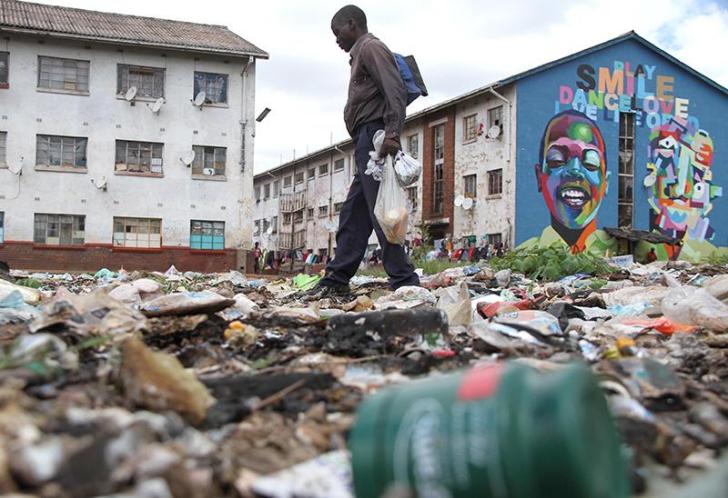News / National
Harare is a man-made disaster
31 Aug 2024 at 10:08hrs |
0 Views

Residents' associations are warning of a potential humanitarian crisis following the decommissioning of the Prince Edward Water Treatment Plant in Chitungwiza due to critically low water levels.
The City of Harare announced that the plant will be temporarily shut down, with plans to recommission it once the dams refill, likely during the rainy season.
The Combined Harare Residents Association (CHRA) expressed concerns that this decommissioning could lead to increased conflicts and gender-based violence at public water points as residents scramble for access to water. They also warned of a strain on the health budget due to potential outbreaks of waterborne diseases, exacerbated by the lack of investment in water infrastructure.
The Zimbabwe National Water Authority (Zinwa) has already cautioned about severe water shortages across urban areas in Zimbabwe, aggravated by the El Niño-induced drought. CHRA urged the government to expedite the completion of the Kunzvi Dam as an alternative water source for Harare and opposed any moves toward water privatization, emphasizing that water is a public good.
Local leaders, including Chitungwiza Residents Trust director Alice Kuveya, fear a severe disaster due to the existing water shortages. Kuveya highlighted the community's ongoing struggle to access clean, safe water, as guaranteed by the Constitution.
City of Harare spokesperson Stanley Gama reassured residents that the decommissioning is temporary and that efforts are underway to restore normal operations, with water being supplied from Morton Jaffray waterworks in the meantime. Despite government assurances earlier this year about sufficient water reserves, the current situation has raised significant concerns among residents and advocacy groups.
The City of Harare announced that the plant will be temporarily shut down, with plans to recommission it once the dams refill, likely during the rainy season.
The Combined Harare Residents Association (CHRA) expressed concerns that this decommissioning could lead to increased conflicts and gender-based violence at public water points as residents scramble for access to water. They also warned of a strain on the health budget due to potential outbreaks of waterborne diseases, exacerbated by the lack of investment in water infrastructure.
The Zimbabwe National Water Authority (Zinwa) has already cautioned about severe water shortages across urban areas in Zimbabwe, aggravated by the El Niño-induced drought. CHRA urged the government to expedite the completion of the Kunzvi Dam as an alternative water source for Harare and opposed any moves toward water privatization, emphasizing that water is a public good.
City of Harare spokesperson Stanley Gama reassured residents that the decommissioning is temporary and that efforts are underway to restore normal operations, with water being supplied from Morton Jaffray waterworks in the meantime. Despite government assurances earlier this year about sufficient water reserves, the current situation has raised significant concerns among residents and advocacy groups.
Source - newsday
Join the discussion
Loading comments…











































